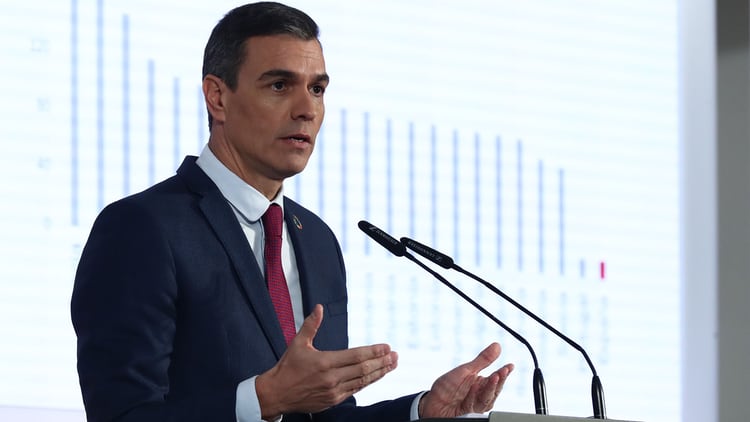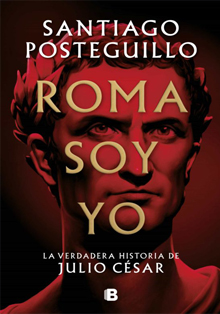Ángel Collado
Pedro Sánchez has ended 2022 with all his objectives accomplished, a stable cabinet despite constant infighting and partners satisfied with his judicial favours. He enters 2023 ready to do anything to guarantee his continuity at the head of the government for another four years.
Having paid his bills with his separatist partners, the head of government is trying to focus public debate on economic policy and the distribution of aid before the PSOE passes the first electoral test of the year, the municipal and regional elections on 28 May.
Then, at the end of the year, will come the final test of the ballot box on Sánchez’s personal project, the first coalition government of socialists and communists in Spanish democracy, backed by all the pro-independence groups, including the political heirs of ETA (Bildu).
The “Frankenstein government”, as defined in 2016 by Alfredo Pérez Rubalcaba, the former secretary general of the PSOE, is going to complete the legislature in the midst of an unprecedented institutional crisis and with the polls against it, but with a leader who is expanding his powers and influence with a paralysed judiciary and celebrating as a personal achievement the “progressive” majority that the Constitutional Court is debuting this year.
It is the call for local elections in May that is now most destabilising for the parties in the executive coalition: the PSOE, Podemos and the new brand that the vice-president of the cabinet Yolanda Díaz is launching to bring together the entire parliamentary far left.
The socialist presidents of autonomous communities with the most to lose in the elections and who do not depend on the independentistas and the podemitas, such as Emiliano García-Paje (Castilla-La Mancha) or Javier Lambán (Aragón) are distancing themselves from Sánchez and his alliances so as not to be harmed at the ballot box.
On the other side, the main opposition party, the PP, is betting on asking for a useful vote from the entire moderate and constitutionalist electorate, including the PSOE, to punish Sánchez’s drift. In the elections held in Madrid and Andalusia, the message worked for them at the polls and, with Isabel Díaz Ayuso and Juan Manuel Moreno, they came close to or achieved absolute majorities that have been the hardest defeats for Sanchismo.
The party presided over by Alberto Núñez Feijóo aspires to win these elections and increase the number of regional governments it controls to the point of tilting the regional map towards its acronym in order to present itself with guarantees of success in the general elections at the end of the year.
Although almost all thanks to pacts with the rest of the left, pro-independence and/or local forces, the socialists lead nine of the 12 regional executives at stake: those of the Valencian Community, Asturias, Aragon, the Balearic Islands, Navarre, La Rioja, the Canary Islands, Extremadura and Castile-La Mancha.
The PP considers its current hegemony in Madrid and Murcia to be guaranteed, and hopes that the socialist erosion will swing former strongholds such as La Rioja to the centre right, and even in other more important regions such as the Valencian Community. The big question is whether the PSOE barons, such as García-Page, will succeed in publicly disassociating themselves from Sánchez in order to avoid losing votes.
To maintain their coalition governments, the socialists have the added problem of the general downward trend of their Podemos allies after being subjected to management scrutiny and portrayed in their constant infighting. In addition to the division of the political movement raised by Pablo Iglesias, there is also the personal project of Yolanda Díaz, the vice-president of the government who, in the shadow of Sánchez, intends to bring together the entire far left. She is not even presenting candidates for the regional elections as such.
In the field of post-electoral alliances, the PP will face the problem of Vox in its efforts to win centre-right majorities against socialists, podemites and pro-independence supporters. The party led by Santiago Abascal acts as opposition and votes with the left against the PP executives in which it is not present, as has just happened in Madrid, in the Community of Madrid and in the city council of the capital. And in the Junta de Castilla y León, where it governs in coalition, the Vox members play the same role as the Podemos populists in the PSOE cabinets: their radicalism and inexperience make them a liability.
The entire political exercise that is beginning will in practice be a permanent electoral campaign in all areas and levels of the state: city councils, provincial councils, island councils and the governments of the 12 autonomous communities plus the autonomous cities of Ceuta and Melilla. But before that campaign Sánchez will have to open a crisis in his government to change at least two of its members, Reyes Maroto and Carolina Darias, who are destined to contest the mayoralties of Madrid and Las Palmas de Gran Canaria respectively.
Just after these elections, the head of the Executive will seize the presidency of the European Union, which he is due to hold in turn, as a platform for personal promotion with his sights set on the elections at the end of the year. It is the role he now likes best, that of “global actor” and “European leader” that he represents from the Moncloa Palace and in which he has placed his hopes to make people forget the nature and the seams of his “Frankenstein government”.







